Fans, experts, and athletes have long debated the title of the greatest swimmers of all time. Throughout history, the sport has been graced by extraordinary athletes who have shattered records and won countless medals. From the various categories of swimming, some individuals have stood out as the most dominant swimmers of all time. However, determining the criteria for what makes a swimmer successful can be challenging. While medals are often used as a measure of success, other factors such as influence, ability, leadership, consistency, and longevity also play a role in determining greatness.
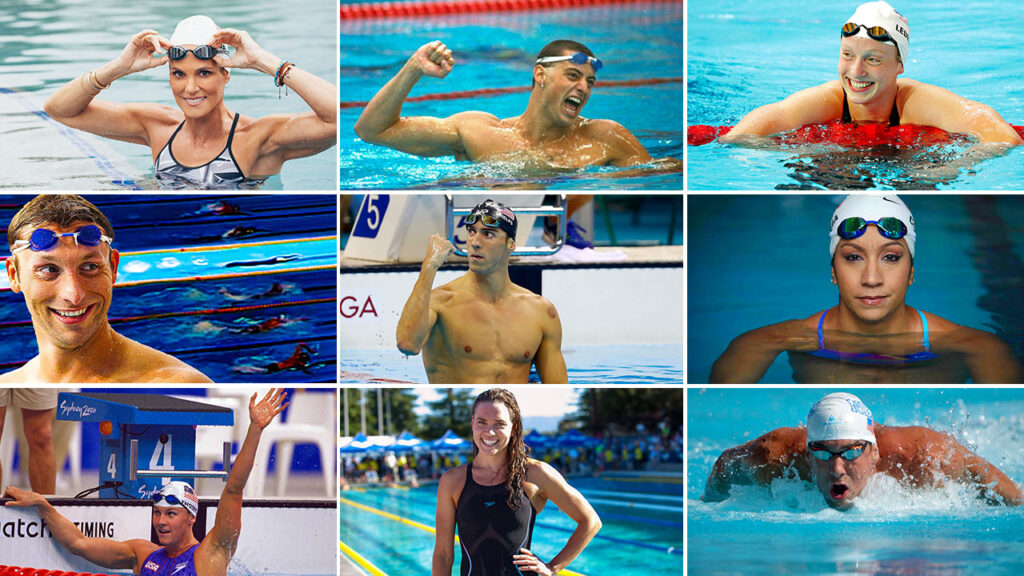
Top 10 greatest swimmers of all time
In this article, we will explore the top 10 greatest swimmers of all time. These individuals have not only achieved remarkable success in the pool but have also made significant contributions to the sport and have left a lasting legacy. We will delve into their accomplishments, their impact on the swimming community, and their endeavors beyond the world of swimming.
1. Maritza Correia
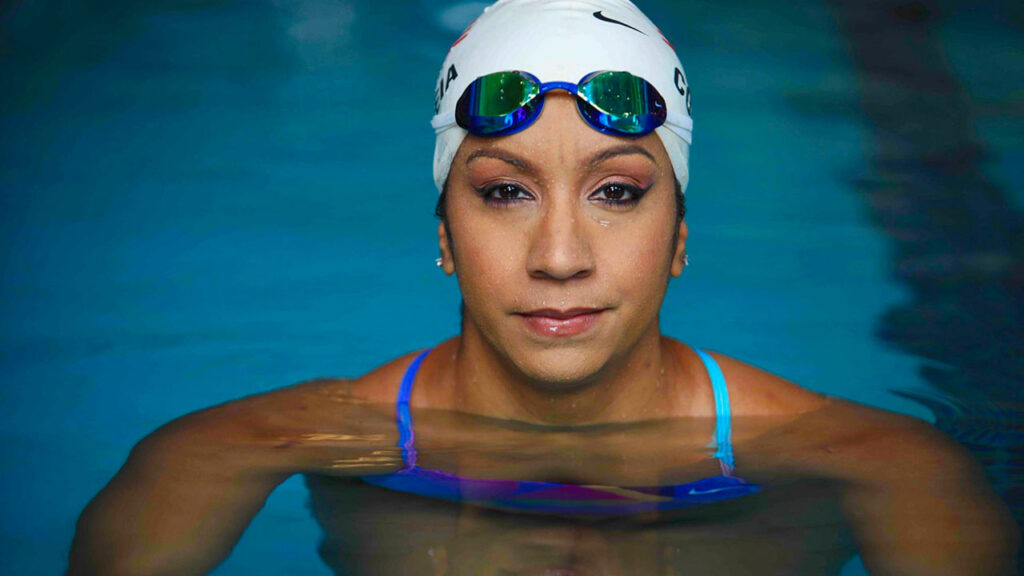
Maritza Correia, born in San Juan, Puerto Rico, overcame the odds, beginning her swimming career at the age of six after being diagnosed with scoliosis. Despite her challenges, Correia achieved great success, earning an Olympic silver medal in the 4 × 100-meter freestyle relays at the 2004 Summer Olympics. She also became the U.S. Open record holder in the 50-yard freestyle in 2002. Correia is considered a trailblazer for young African American and Latinx swimmers, and she currently serves as an ambassador for USA Swimming’s Swim 1922 Program.
Maritza Correia’s incredible journey showcases the power of determination and resilience in the face of adversity. Despite her scoliosis diagnosis at a young age, she pursued her passion for swimming and achieved remarkable success on the world stage. Correia’s impact extends beyond her athletic achievements, as she continues to inspire and empower young swimmers from underrepresented communities.
2. Johnny Weissmuller
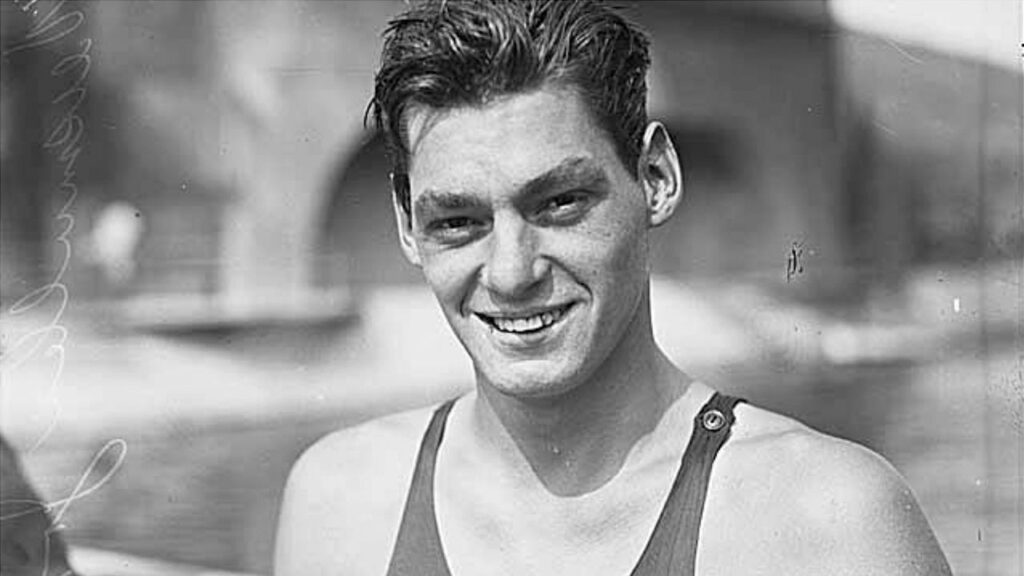
Johnny Weissmuller, widely regarded as the greatest swimmer of all time, achieved incredible success both in the pool and on the silver screen. He won a total of five Olympic gold medals for the United States and set 67 world records during his career. Weissmuller transitioned into acting, gaining fame for his role as Tarzan in classic adventure films. He was also hailed as a real-life hero when he and his brother rescued 20 people from a capsizing boat in 1927.
Johnny Weissmuller’s impact on the sport of swimming cannot be overstated. His athletic prowess, combined with his charismatic personality, made him a household name and helped popularize swimming as a competitive and recreational activity. Weissmuller’s transition into acting showcased the versatility and star power of swimmers, elevating their status beyond the pool.
3. Jenny Thompson
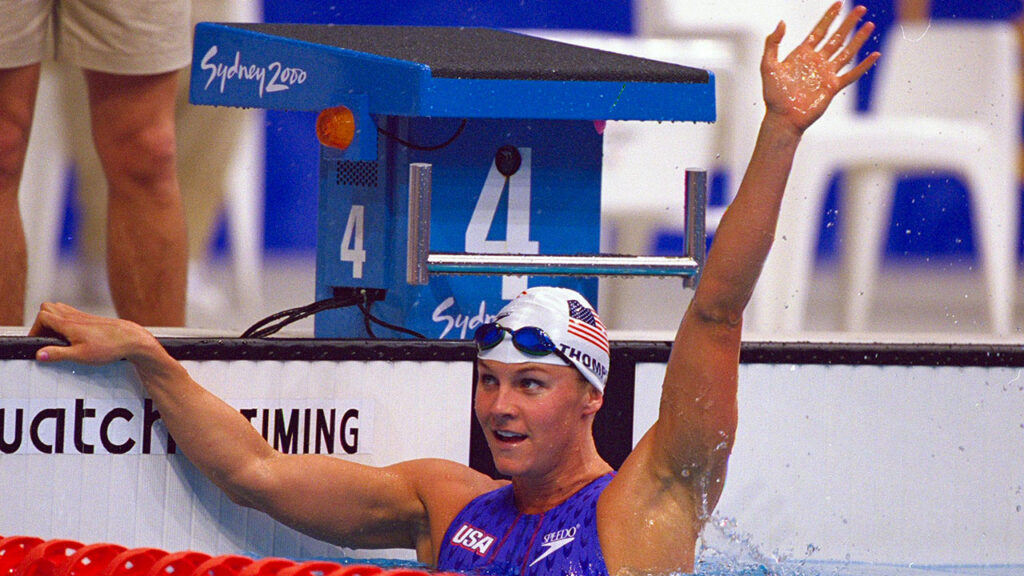
Jennifer Thompson, the most decorated female swimmer of all time, holds the title of the greatest female swimmer in history. Throughout her career, she won a total of 12 Olympic medals, including eight gold medals, across the 1992, 1996, 2000, and 2004 Summer Olympics. Thompson currently works as an anesthesiologist and is actively involved with Swim Across America, a charitable organization that raises funds for cancer research.
Jenny Thompson’s achievements in the pool are nothing short of remarkable. As the most decorated female swimmer of all time, she has etched her name in swimming history. Thompson’s dedication to both her athletic pursuits and her medical career exemplifies the commitment and drive required to excel in and out of the water.
4. Matt Biondi
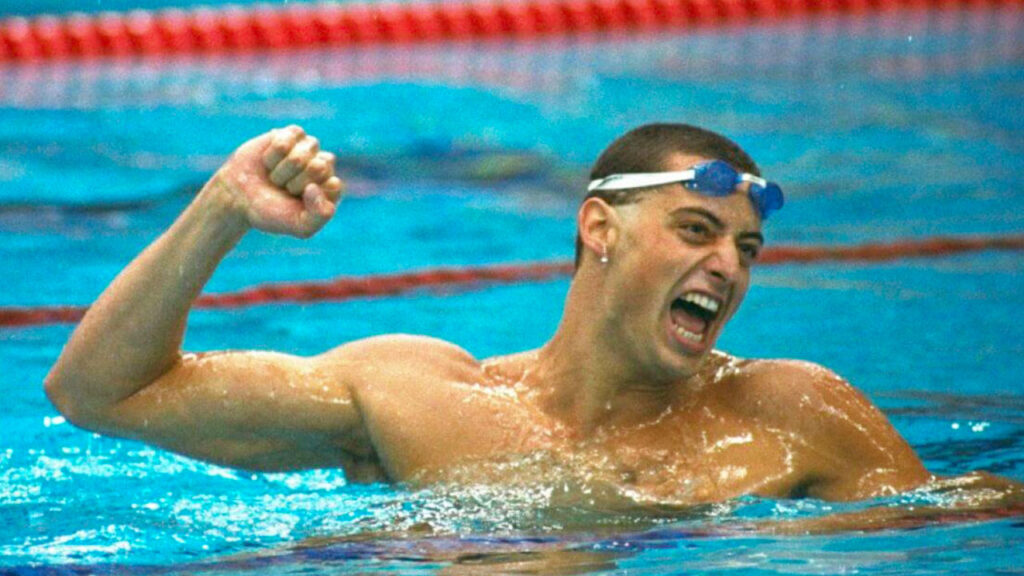
Matt Biondi, a former competitive swimmer and water polo player, is an 11-time Olympic medalist. Recognized by various organizations such as the International Swimming Hall of Fame, the U.S. Olympic Hall of Fame, the UC Berkeley Hall of Fame, and the National Italian American Sports Hall of Fame, Biondi is considered one of the greatest swimmers of all time. After retiring, he pursued a career in teaching and coaching and currently works as a math and swimming coach at Sierra Canyon School.
Matt Biondi’s impact extends beyond his impressive medal count. His commitment to education and coaching has allowed him to pass on his knowledge and passion for swimming to the next generation. Biondi’s accolades and contributions to the sport have solidified his status as one of the greatest swimmers in history.
5. Dara Torres
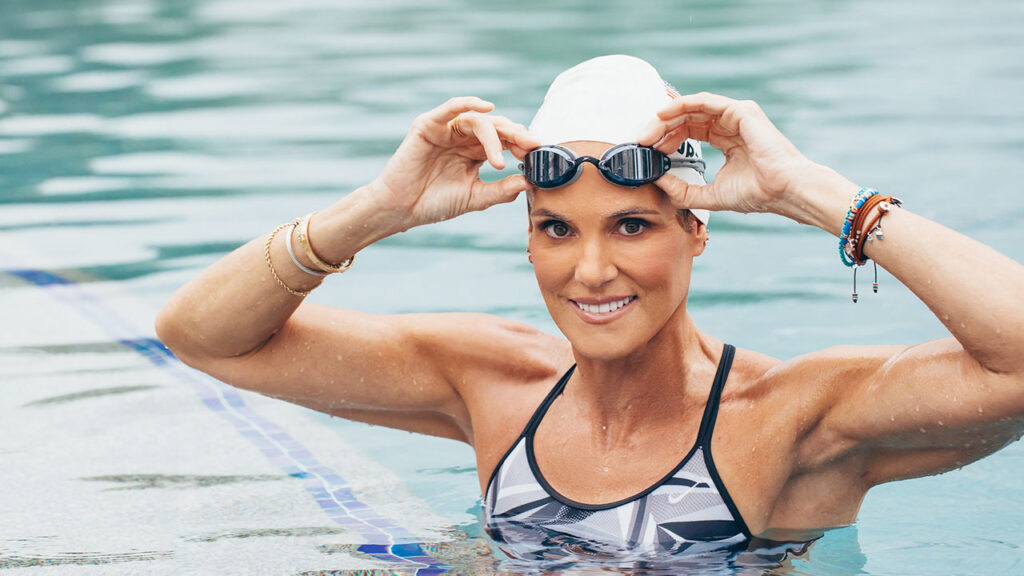
Dara Torres, known as one of the best swimmers of all time, made history as the first U.S. swimmer to participate in five different Olympic Games. With 12 Olympic medals to her name, Torres became a world record-holder in three events and the oldest female swimmer to win an Olympic medal. After retiring, she worked as a reporter for various television networks and currently serves as the vice president of Princess Charlene of Monaco Foundation, an organization dedicated to preventing drowning.
Dara Torres’ longevity and success in the sport are testaments to her incredible talent and dedication. Her achievements have shattered age stereotypes in swimming, proving that age is just a number when it comes to pursuing one’s passion. Torres’ involvement in drowning prevention highlights her commitment to giving back and ensuring the safety of future generations of swimmers.
6. Natalie Coughlin
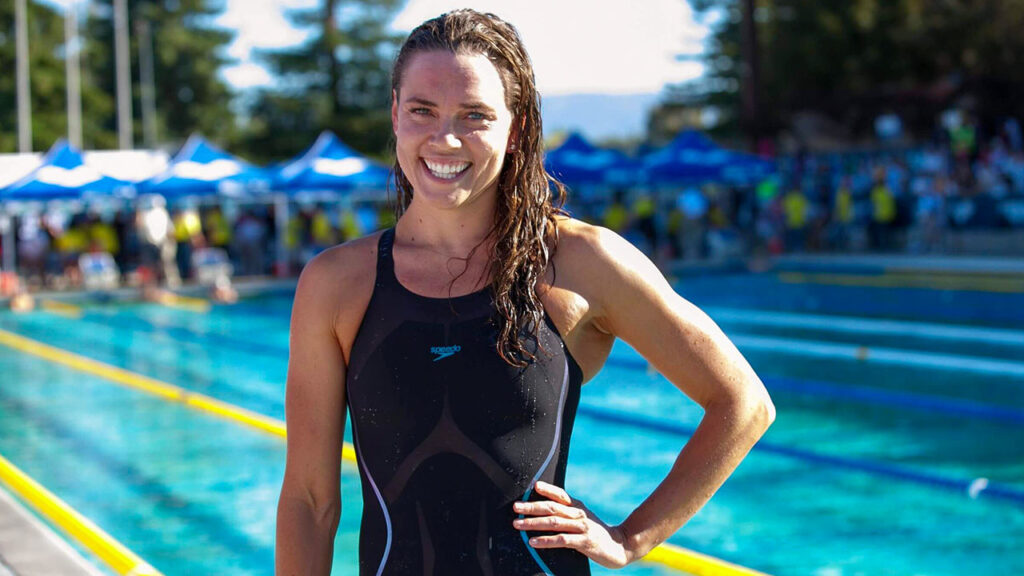
Natalie Coughlin, a former swimmer and Olympic medalist, holds numerous accomplishments in the sport. She was the first female athlete to swim under 1:00 in the 100-meter backstroke and won a total of 12 Olympic medals, including three gold medals. Coughlin ventured into business after retiring and is now a brand ambassador and investor in the frozen food company Luvo Inc.
Natalie Coughlin’s impact on the sport of swimming goes beyond her impressive medal count. Her groundbreaking achievements in the 100-meter backstroke showcased her incredible skill and helped pave the way for future generations of female swimmers. Coughlin’s entrepreneurial endeavors demonstrate her versatility and drive to succeed outside of the pool.
7. Ian Thorpe
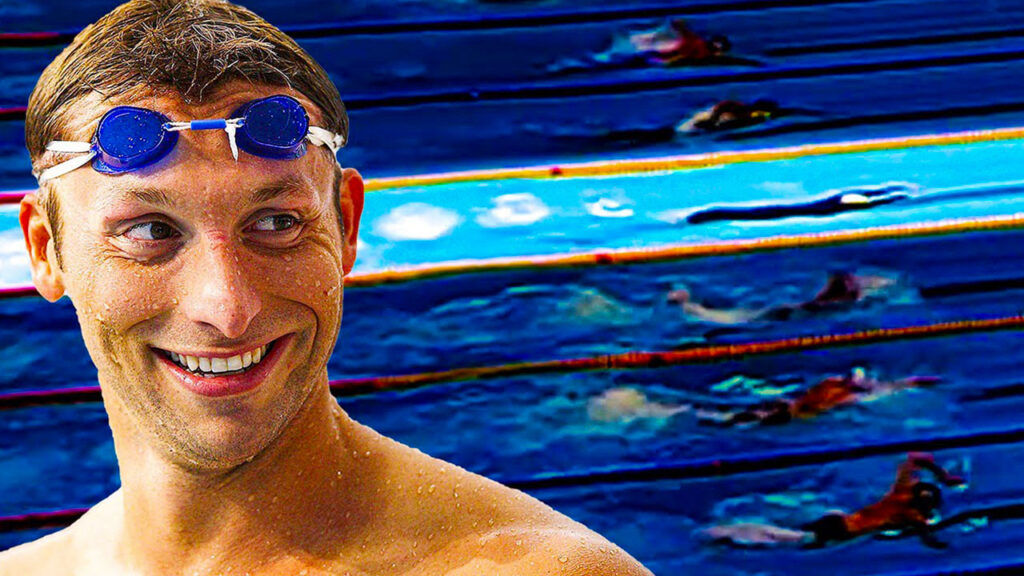
Ian Thorpe, a retired Australian Olympic swimmer, is widely known as the “Thorpedo.” With a total of nine Olympic medals, including five gold medals, Thorpe is considered one of the greatest swimmers in Australian history. After his retirement, he delved into film and produced the documentary “Bullied,” which shed light on the issue of school bullying. He was inducted into the Sport Australia Hall of Fame in 2008 and elevated to Legend of Australian Sport in 2021.
Ian Thorpe’s impact on Australian swimming is immeasurable. His success in the pool captivated the nation and inspired a new generation of young swimmers. Thorpe’s advocacy against bullying demonstrates his commitment to using his platform to bring about positive change and make a difference in the lives of others.
8. Katie Ledecky
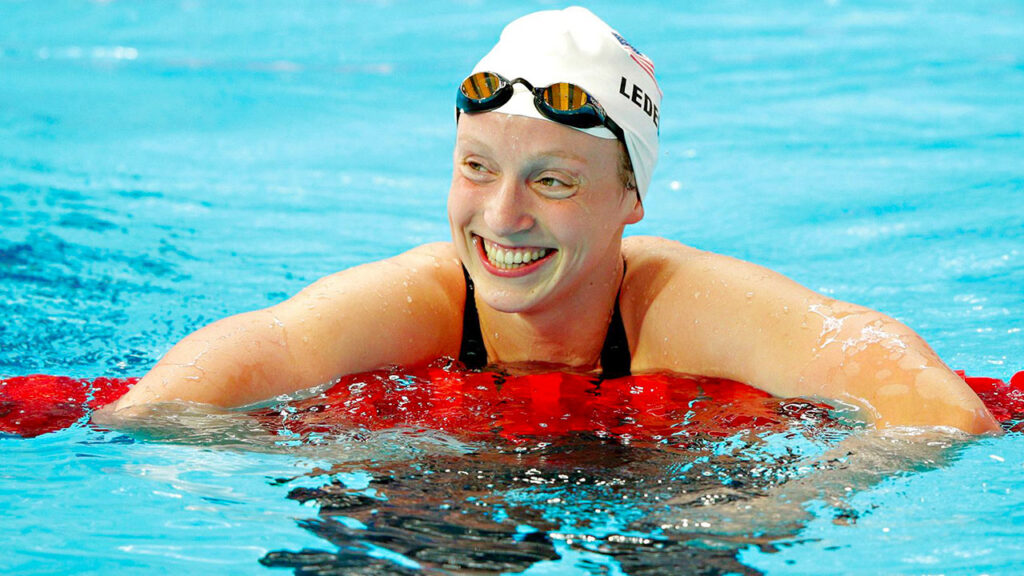
Katie Ledecky, often hailed as the GOAT of women’s swimming, holds an impressive record of seven Olympic gold medals and 19 World Championship gold medals. Ledecky is considered a dominant force in freestyle events and has excelled in distances ranging from 200 meters to the mile. In addition to her swimming career, Ledecky has been involved in philanthropy work, volunteering with Bikes for the World.
Katie Ledecky’s dominance in freestyle events is unparalleled. Her versatility and consistent success in various distances have established her as one of the greatest swimmers of all time. Ledecky’s commitment to philanthropy showcases her character and dedication to making a positive impact on the world beyond her athletic achievements.
9. Mark Spitz
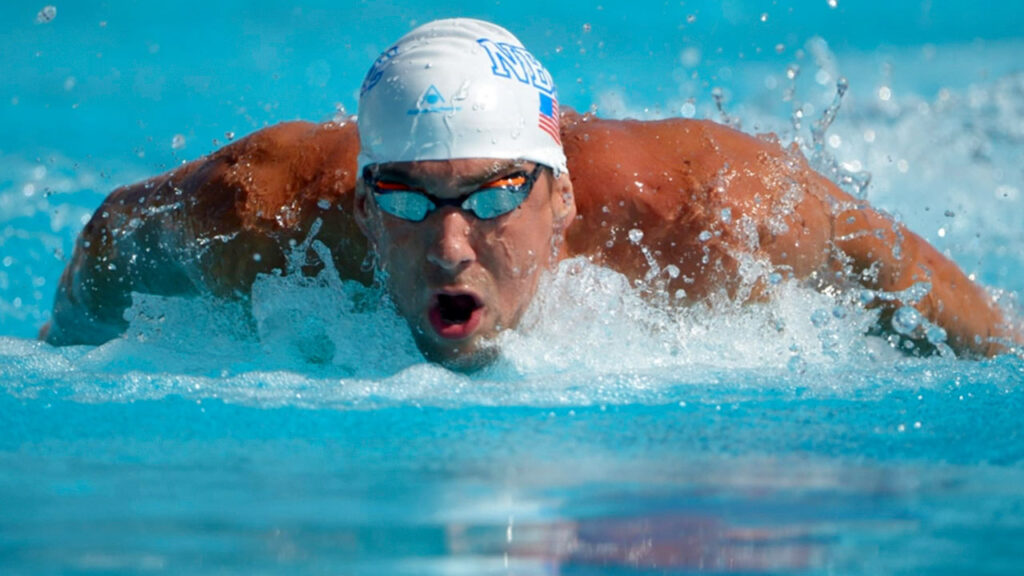
Mark Spitz, a former competitive swimmer, is a nine-time Olympic champion and holder of multiple world records. At the 1972 Munich Summer Olympics, Spitz won an astounding seven gold medals, all in world-record time. Since retiring from swimming, he has worked as a motivational speaker, influencer, and investor.
Mark Spitz’s historic feat at the 1972 Olympics solidified his status as one of the greatest swimmers in history. His exceptional performance, coupled with his subsequent endeavors, has made him an influential figure both within and outside the swimming community. Spitz’s ability to inspire and motivate others showcases his enduring impact on the sport.
10. Michael Phelps
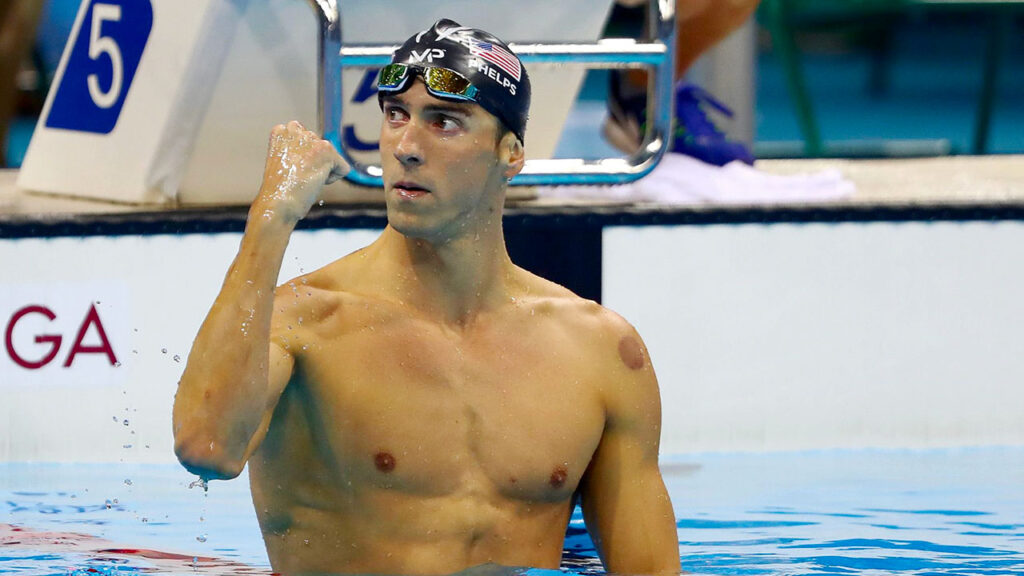
It is undeniable that Michael Phelps is the greatest swimmer of all time. Holding a remarkable record of 23 Olympic gold medals, three silver medals, and two bronze medals, Phelps is the most decorated Olympian of all time. His dominance in the sport has earned him the title of the number one GOAT in swimming. Phelps started swimming at a young age under the coaching of Olympic Swimming Coach Bob Bowman, who instilled discipline and guided him on his path to greatness.
Michael Phelps’ impact on the sport of swimming is unmatched. His unrivaled medal count and unprecedented achievements have solidified his status as a legend in the swimming world. Phelps’ commitment to his craft and the discipline he displayed throughout his career serve as an inspiration to all aspiring swimmers.
Conclusion
While these individuals are hailed as the top 10 greatest swimmers of all time, it is important to recognize that swimming has produced exceptional athletes from various countries. Adam Peaty in Britain, Adrian Radley in Australia, and Miguel Molina in the Philippines are just a few examples of swimmers who have made significant contributions to the sport. Swimming continues to evolve, and new stars are constantly emerging, leaving their own mark on the sport’s history. The legacies of these top swimmers will continue to inspire and motivate future generations to excel in the pool and strive for greatness both in and out of the water.
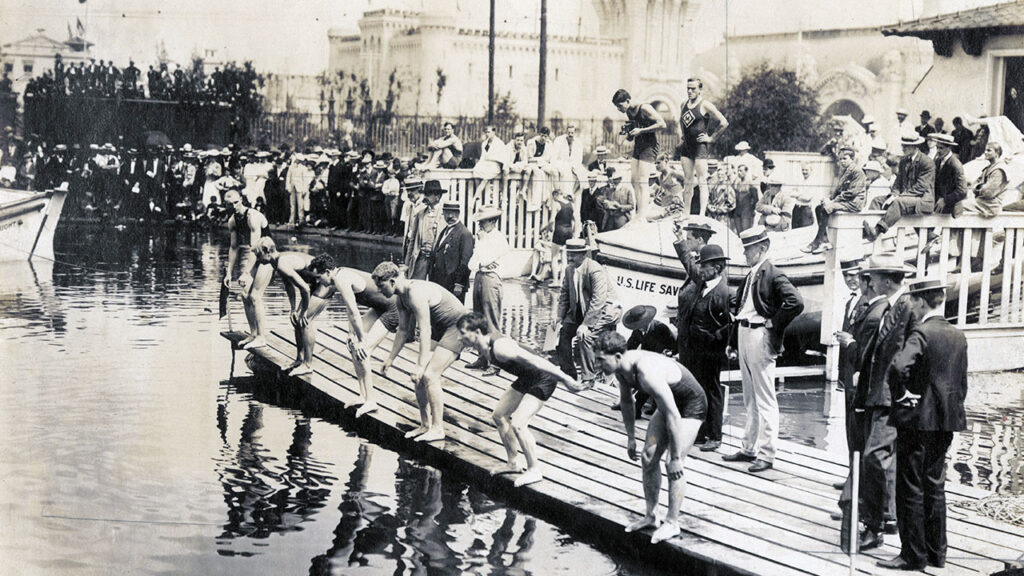
History of swimming
The history of swimming dates back thousands of years and has evolved from a necessity for survival to a popular recreational and competitive activity. Here’s an overview of the history of swimming:
Ancient Times: Swimming has been practiced since ancient times for survival and transportation. Evidence of swimming dates back to ancient civilizations such as the Egyptians, Greeks, and Romans. The ancient Greeks viewed swimming as an essential skill and included it in their physical education programs.
Medieval and Renaissance Periods: Swimming’s popularity declined during the Middle Ages due to religious beliefs and hygiene concerns. However, by the Renaissance period, interest in swimming began to resurface, and swimming gained recognition as a beneficial exercise.
18th Century: In the 18th century, swimming gained popularity as a leisure activity among the European elite. Swimming became an integral part of the education of young boys, particularly in England. Competitions, often involving feats of endurance or distance swimming, started to emerge.
19th Century: The National Swimming Society, founded in London in 1837, played a significant role in promoting swimming as a competitive sport. Swimming styles and techniques began to develop, with the sidestroke and breaststroke being the predominant styles at the time. Swimming also became an event in the first modern Olympic Games held in Athens in 1896.
20th Century: The 20th century brought significant advancements in swimming techniques, particularly with the introduction of the front crawl, which eventually evolved into the freestyle stroke. Australian swimmer Annette Kellerman helped popularize women’s competitive swimming, and her participation in a long-distance swim across the English Channel in 1905 attracted worldwide attention.
Competitive Swimming and Modern Techniques: The 20th century saw the establishment of international swimming federations, such as FINA (Fédération Internationale de Natation), which further standardized rules and regulations for competitive swimming. Swimmers like Johnny Weissmuller and Duke Kahanamoku became legendary figures, contributing to the sport’s popularity. Advances in training techniques, swimwear, and pool design continued to shape competitive swimming.
Olympic Dominance: Swimming has been a core component of the modern Olympic Games since their inception. Swimmers from various countries have achieved remarkable feats and broken numerous records. Names like Michael Phelps, who holds the record for the most Olympic gold medals, have become synonymous with swimming excellence.
21st Century and Beyond: Swimming remains a popular sport and recreational activity around the world. Technological innovations have led to improvements in swimwear, training methods, and pool technology, resulting in faster times and new records. Open water swimming, synchronized swimming, and other aquatic disciplines have also gained prominence.
Throughout its history, swimming has evolved from a survival skill to an essential form of exercise, a recreational activity, and a highly competitive sport. It continues to capture the interest and enthusiasm of people of all ages and backgrounds.


